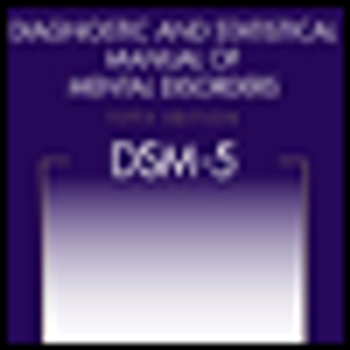
Schizophrenia is often characterized by lack of insight, treatment nonadherence, and poor prognosis. However, research suggests that patients with schizophrenia benefit immensely from learning about their illness.

Schizophrenia is often characterized by lack of insight, treatment nonadherence, and poor prognosis. However, research suggests that patients with schizophrenia benefit immensely from learning about their illness.

As I near the 1-year anniversary of my crowning as a World’s Expert, it seems like only yesterday that I was just an average citizen . . . I am at heart a clinician and a consummate clinician is what I aim to be.

While research suggests that cannabis use can induce an acute psychotic state, there is controversy about whether it may precipitate psychotic disorders, such as schizophrenia. These authors offer an update on this important issue and provide clinically useful recommendations.

When we work with patients whose experiences don't align with our expectations, we must be careful not to dismiss those experiences simply because they clash with the overriding psychiatric paradigm.

The designer of the DSM-5 Field Trials has just written a telling commentary in the American Journal of Psychiatry. She makes what I consider to be 2 basic errors that reveal the fundamental worthlessness of these Field Trials and their inability to provide any information that will be useful for DSM-5 decision making.

How often do insomnia and anxiety disorders coexist? And how best to treat patients with comorbid insomnia and anxiety? Answers here..


Critics of DSM-5 argue that the expansion of diagnostic criteria may increase the number of “mentally ill” individuals and/or pathologize “normal” behavior, and lead to the possibility that thousands-if not millions-of new patients will be exposed to medications which may cause more harm than good.

Sexual identity development is a complex, multidimensional, and often fluid process. One must consider cognitive, social, emotional, cultural, and familial complexities among other aspects of the individual’s experience to contextualize a narrative concerning sexual identity development.

Skin diseases are not just a cosmetic issue; they are associated with a variety of psychological reactions that affect patients’ level of functioning and can produce agony for the family.

A study has reported a link between postpartum psychosis in women within 2 weeks after childbirth and a future risk of developing it.

In his book, How We Age: A Doctor’s Journey Into the Heart of Growing Old, Dr Marc Agronin helps reduce the stigma of ageism and provides clinical guidance for seasoned geriatric psychiatrists, primary care clinicians, and medical students alike.

On November 21, 2011, John Oldham, MD, president of the American Psychiatric Association (APA), wrote a response letter to Don W. Locke, EdD, president of the American Counseling Association, who had some concerns with proposed revisions for DSM-5.

Some months ago, I received a stern admonition from my family doctor. My fasting blood sugar of 99 mg/dL was “right on the border”, he said, and I had better work on bringing it down. “But,” I protested, “when I was in medical school (in the 70s), the normal FBS range went up to 110 mg/dL!” "Well,” he replied a bit huffily, “they changed the criteria!”

When working with patients who are at high risk for relapse or misuse of prescription medications, careful documentation of the informed consent process is a helpful risk management tool.

Psychotic episodes are devastating for the individuals who have them, their friends, and families. Wouldn’t it be wonderful if individuals could receive treatment before the first psychotic episode strikes, so that it could be avoided altogether?

Here, Dr Ira Steinman, discusses the concept behind "Beyond Pandora's Box: Exploring Integrative Approaches to Treating Psychosis."

I have previously framed a series of questions inviting Professor McGorry to state clearly his current positions on: the accuracy and suitability of attempting to predict psychosis; the types of preventive interventions that he believes are indicated and those (perhaps antipsychotics) that clearly are not . . .

Substance use disorders are associated with significant morbidity and mortality that affects individuals and their families. Preventing the onset of an SUD in adolescence remains a critical area of clinical and public health significance.

Increased activity of the enzyme phospholipase A2 (PLA2) has been documented in schizophrenia and is now reported to occur in patients with temporal lobe epilepsy . . .

Depression, PTSD, panic disorder, and abuse of alcohol and drugs are more insidious, quieter forms of illness that can cause the same desperation and disability as psychotic disorders.

A review of some of the latest study findings on the pharmacological treatment of prodromal psychosis.

Anxiety disorders occur in 18% to 28% of the US general population during any 12-month period. In anxiety disorder, there is a 33% to 45% 12-month prevalence rate for a comorbid substance use disorder (SUD).

In this article, we attempt to leverage state-of-the-art research findings to provide empirically informed perspectives and practices related to these issues.

Psychosis Risk (AKA attenuated psychotic symptoms disorder) has always had 3 strikes against it.